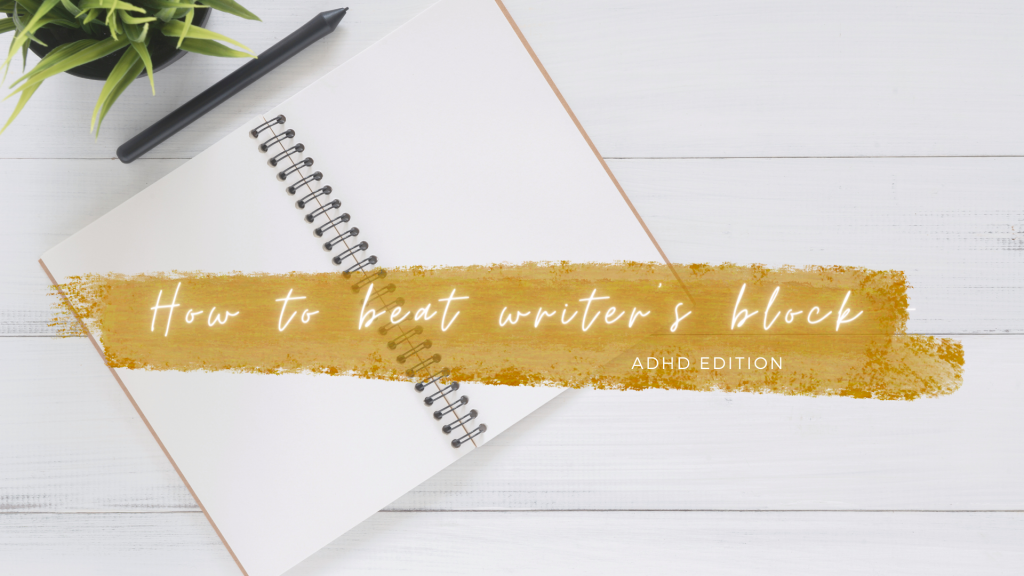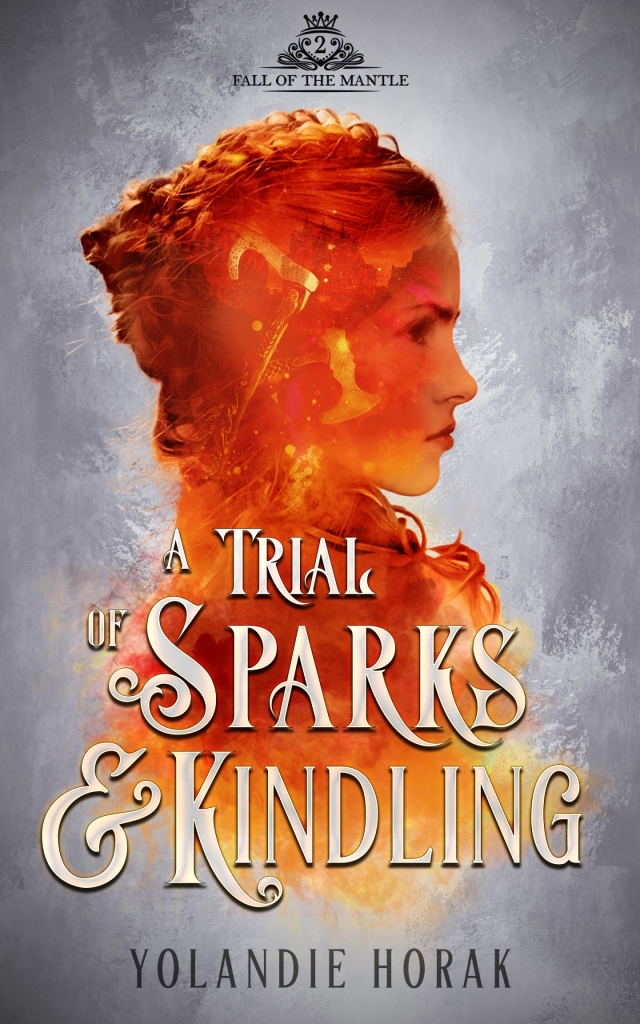I’ve said this a million times and will likely never shut up about it, but we all just want to fit in, right? We want to know our struggles aren’t unique, and that someone out there gets what we’re going through.
So, during the worst writer’s block of my life, I did what any run-down writer would do and looked for advice on combatting the block. And this is no small thing since I used to be pretty adamant that writer’s block isn’t a thing. Yeah, I dun goofed.
Unfortunately, all advice about writer’s block is shockingly similar.
Case in point. Before writing this post, I did a quick Google search using the prompt ‘how to combat writer’s block’ and opened the first 15 results. I listed each advice headline and tallied how many times each was repeated throughout the articles. (Sometimes, the same concepts were repeated in different wording in an article, but I counted only the first instance.)
This is what I got:
- Do something creative/hobbies—13
- Take a walk/exercise—11
- Read—10
- Brainstorm with friends/writing community—10
- Work on another scene, chapter, writing project, or genre—10
- Freewrite—9
- Ignore perfection, grammar, and stylistic rules—9
- Organise your workspace/work somewhere new—8
- Just start writing—7
- Do something productive (eg chores, errands)—7
- Make writing a habit/follow a writing schedule—7
- Self-care (eg nap, eat, shower)—7
- Plan/outline/research—6
- Don’t empower the concept of ‘writer’s block’ (in other words, if it isn’t real, it can’t hurt you)—6
- Use the Pomodoro method/timed writing sessions—5
- Try writing prompts—5
- Unplug your phone/avoid distractions—5
- Change your writing tool (eg dictate, use a notebook and pen instead of a computer, etc)—4
- Meditate—4
- Be kind to yourself—4
- Reduce pressure or change the goal (eg lower your expected daily word count or move the deadline)—3
- Write at your most creative time—3
I also got some advice like:
- Listen to music
- Use a reward system
- Rubber duck debugging
- Journal about your writer’s block
- Read your work aloud or read it from the beginning
- Find inspiration in the news, social media, or on visual sites like Pinterest
Personally, the advice I received most was ‘just walk away for a bit.’
But for some reason, none of the advice worked.
My writer’s block lasted for literal years. I’m still not back to the writing speed and inspiration levels I’d like, but I’ve made progress.
Recently, I’ve been struggling again. So, I returned to the Goog to figure out what I was doing wrong (again). And made no earth-shattering discoveries (again).
I’ve done all the things. Reduced pressure by lowering my expectations. Followed a religious schedule. Brainstormed and talked out issues until I was hoarse. Tried timed writing sessions with rewards at the end. Reduced distractions. Walked away. Started working on different projects.
I want to finish this novel so badly that it hurts, but I can’t get there.
The problem must’ve been stewing in my subconscious because a random idea registered last week. And it’s so simple, so straightforward, it almost made me weep. Ready?
I have ADHD. Maybe, just maybe, the writing advice out there doesn’t work as well for me because it’s aimed at neurotypicals.
And a light went on in my cobwebbed brain.
Neurotypicals (bless you) don’t understand hyperfixation or hyperfocus. They don’t get the drive to find dopamine. They can sit at their desk and force themselves to just start writing, but for a neurodivergent with gaps in their motivation bridge, that might be near impossible.
So, let’s talk about a few strategies to fight writer’s block for ADHDers or our other neurodivergent peeps.
Tried and True
Yes, we neurodivergents will benefit from the above advice, too.
Exercise or long walks stimulate brains that can’t chill.
Creative pursuits or hobbies are a must.
Hydrate, hydrate, hydrate.
That writing community or brainstorming buddy is a massive help.
I don’t know in what ditch I’d be found without my habits, writing or otherwise.
Reward system? Yes.
But let’s talk about the other methods that might help ADHDers kick writer’s block and finish the damn book already.
Inverse Pomodoro
This sounds wild, I know. But for me, especially in the throes of hyperfixation, walking away from a project is almost impossible. I’ll sit at my desk and beat myself to a pulp because I can’t write. Do I take breaks? No. Do I eat? No. I’ll try and try and try and make absolutely no progress. That’s the quickest formula for burnout ever.
But as with all things ADHD, I find it easier to do the task if it’s broken into smaller sections. So, I chill for 25 minutes, then write for 5. Chill for 25, write for 5. Sometimes, this process must repeat a few times, but more often than not, when I start writing with a full dopamine cache, the writing just happens naturally.
Set a Deadline and Find an Accountability Buddy
Neurodivergents do their best work in the hour before the project is due. So, while our neurotypical buddies might work better if they reduce the pressure or extend the deadline, we’ll flourish with the stakes just a teensy bit higher.
Instead of setting an overall deadline (because our time-blind minds will convince us we can finish an entire manuscript in an evening) we can set chapter or word-based deadlines. Eg, I have to finish this chapter by Friday, or 10k words by the end of next week.
But, knowing how neurodivergents like to sniff out loopholes, we’ll also need someone to check up on us, otherwise we’ll ignore our deadlines.
There’s this golden nugget of advice on ADHD platforms: if you need to clean the house, invite a friend. Accountability is one of ADHD’s greatest motivators.
Let’s apply that advice to writer’s block. Find a friend who’ll check up on your work or deadlines.
Procrastinate
Even wilder than the Inverse Pomodoro, but just as the idea for this blog post stewed in my subconscious, plot issues might resolve themselves while we free up mental space. So, instead of bludgeoning ourselves and piling on our mental strain, why not allow our brains to wander?
If it helps, schedule time for procrastination time, and return to work once the alarm rings. Also consider keeping fidget toys, doodling supplies, or puzzles on your desk.
And if you’re hyperfixating and procrastination makes you feel guilty for not working (welcome to the club) try procrastinating in a way that is conducive to your writing. For example, start a Pinterest board with the aesthetic of your characters and world, curate a bookish playlist, draw colouring pages of your characters, or create content for your social media (find some of these for my books here). You can procrastinate and still work on your writing!
Read
There’s a reason this piece of advice repeats so often, but we rarely remember the fact that reading isn’t only something we do to relax—it’s part of writing.
When we read, we absorb grammar and stylistic rules. We learn about tropes and the story block expected in specific genres. We learn about world-building and character development. We even learn about story beats and pacing.
Reading is an integral part of being a writer, so read. Widely.
But, here’s the kicker.
During my writer’s block, I couldn’t read at all. Nothing spoke to me, and I couldn’t get through the first few books I tried.
I now understand that my brain was desperate for a dopamine fix, and the books I tried at the time weren’t giving me the hit I needed. So, I stopped trying. But again, I have ADHD. I didn’t know this about myself then, or the whole situation might’ve gone down differently.
Thankfully, we can learn from our past.
Instead of just picking a random book, try going back to your favourite book. Something you know will inspire you or give you the dopamine hit you need. If you choose to read something random and you don’t enjoy it, don’t be afraid to put it down and pick another one, until you find the book that fills your well.
Visual Aides
I’ve always failed when it comes to planning my stories, but I’ve reached the third book in a 5 book series, which means I have a lot of plot aspects to consider. Sometimes, keeping track of all the convoluted backstories is A LOT. Also, many of my characters have had physical changes since A Study of Ash & Smoke.
So, while I struggled with writing motivation, I made cue cards of my characters and listed important story events (and the pages where they happened in the softcovers of my books). Having quick references has helped me straighten out some of the plotlines, which allowed me to resume writing.
Of course, you could make digital lists etc, but because many ADHDers learn visually, having physical aides might help more.
How do you beat writer’s block? Let’s chat in the comments.
Until next time.
Yolandie




